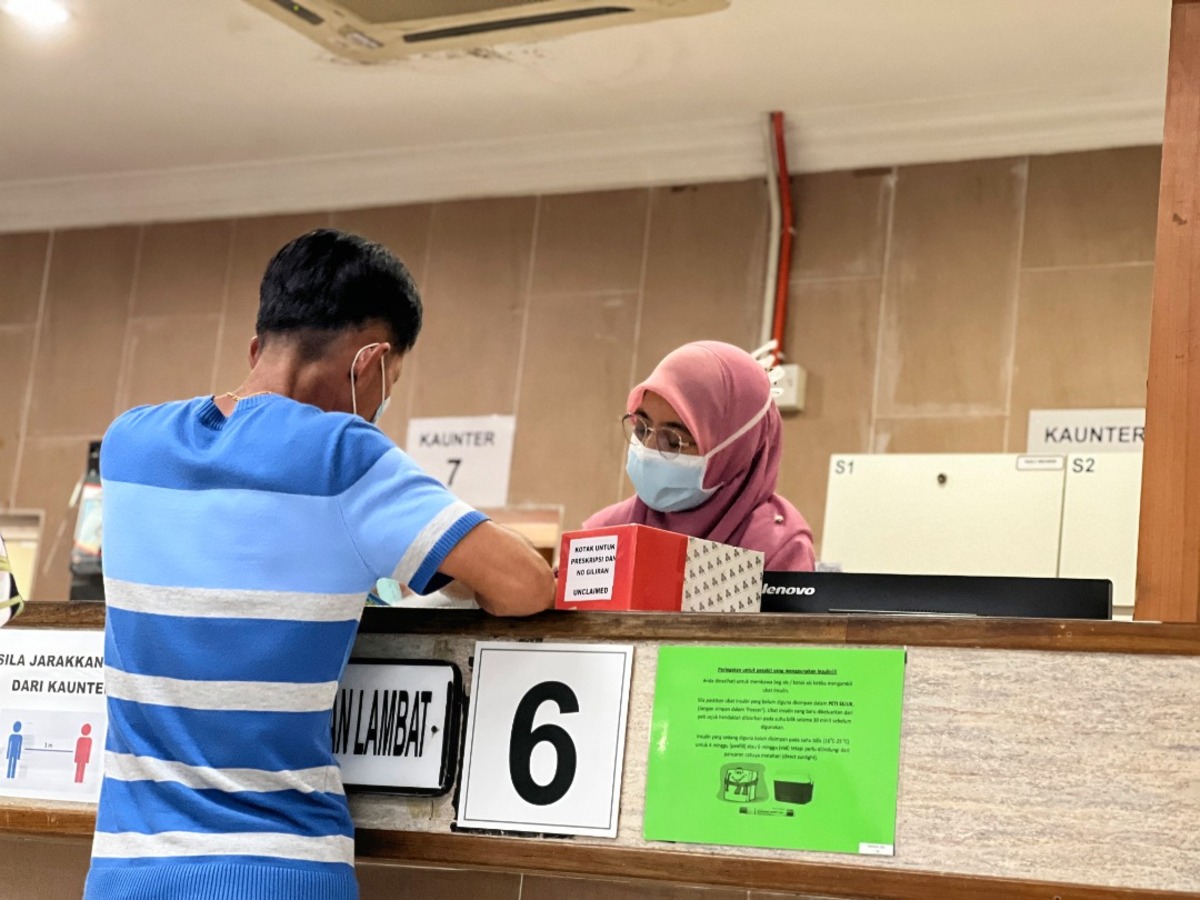KUALA LUMPUR, Mar 1 – The financial troubles facing Pharmaniaga Bhd have raised concerns about the country’s public health sector, with an expert warning of a potential disruption to the supply of critical medicines and drugs.
Galen Centre for Health and Social Policy chief executive Azrul Mohd Khalib said the inclusion of Pharmaniaga into Bursa Malaysia’s Practice Note 17 (PN17) classification of financially distressed companies represents a “wake up call” for the pharmaceutical sector.
“The situation affecting Pharmaniaga is very worrying and has potentially severe implications across the entire Malaysian pharmaceutical landscape, especially the public health sector,” Azrul said in a statement today.
“If the company deteriorates further, there could be a massive disruption to the supply of medicines and drugs to the public health system.”
Pharmaniaga, which holds exclusive rights from the government to distribute essential medicines to public health care facilities, recently recorded its largest quarterly net loss of RM664.39 million in the fourth quarter ended December 31, 2022.
This was primarily due to the RM552.3 million impairment of Covid-19 vaccines. As a result of this significant loss and other financial indicators, the company’s board of directors has announced that Pharmaniaga has become an affected listed issuer under PN17.
The term “PN17” is used by Bursa Malaysia to refer to companies that are facing financial difficulties or are at risk of insolvency. These companies have failed to meet certain financial criteria set by the exchange, such as net assets, earnings, and cash flow.
Once a company is classified as PN17, it must work to meet certain conditions and submit regular reports to Bursa Malaysia on its financial position. PN17 companies may face various restrictions and requirements, such as a suspension of their shares from trading and the appointment of an independent advisor.
Yesterday, trading of Pharmaniaga’s securities was suspended due to a sharp decline in the company’s share price. The price fell by 50 per cent to a low of 22 sen in the morning session, causing a loss of RM222 million in Pharmaniaga’s market capitalisation. Trading resumed today.
Azrul said Pharmaniaga’s PN17 status highlights the need for urgent reforms to be introduced, particularly on the public sector’s procurement practices of medicines.
“The situation affecting Pharmaniaga exposes vulnerabilities in the current public health sector’s pharmaceutical procurement processes and highlights the need to undertake long argued for reforms in this sector.
“There is a need to emphasise on the importance of competition, diversity of providers, getting rid of tender agents as middlemen, and reducing government interference,” he said.
For more than 25 years, Pharmaniaga held an exclusive concession to purchase, store, supply, and distribute over 700 pharmaceutical products on the Approved Products Purchase List (APPL). This represented more than a third of the government’s branded and generic drug supply.
Additionally, the government-linked company (GLC) was responsible for the logistics and distribution of these medicines.
Azrul said the government’s reliance on such exclusive concessions granted to individual GLCs has led to an unhealthy dependence on these companies. The situation makes companies like Pharmaniaga seem indispensable and “too big to fail”, which puts Malaysia’s public health care system at risk of significant disruption if these GLCs face financial difficulties.
The current situation with Pharmaniaga is a prime example of this issue, Azrul said.
In 2019, the government made a commitment to move away from concession agreements and adopt open tenders. But this was disrupted by the Covid-19 crisis and Pharmaniaga was granted multiple extensions.
“Arguably, the soft landing never happened, and the reduction of reliance on these arrangements has not been achieved,” Azrul said.
Azrul argued that the government has not yet succeeded in reducing its reliance on these arrangements, and the lack of progress in this area has discouraged potential competitors from investing in or participating in the tender process for the approved products purchase list (APPL).
“Reforms also include removing dependence on tender agents, acting as middlemen within the procurement process, who charge commission for their services and increase the cost of medicines.
“Allowing suppliers to negotiate and bid directly with the government could potentially enable millions in public funds saved, lower prices, increase cost effectiveness and for newer therapies to be made available for patients. It will introduce improved diversity of suppliers and reduce vulnerability,” Azrul said.
Azrul expressed doubt that Pharmaniaga would be able to sell the majority of its RM552.3 million worth of Covid-19 vaccines, citing decreased demand in the region due to improved understanding of the vaccine’s effectiveness and the disease.
Additionally, the stock will have to compete with newer bivalent Covid-19 vaccines that promise better coverage of new variants of the virus.
In recent months, the Covid-19 situation has remained stable, despite increased travel during the year-end holiday period and China’s shift away from a zero-Covid policy.
Singapore last month declared the end of the acute phase of the pandemic, which entails no longer mandating mask-wearing on public transport and in indoor health care and residential care settings, and additional reduction in pandemic subsidies, among others.
Azrul said the government has a few options if it decides to intervene in Pharmaniaga. One option is to provide a significant cash infusion, guarantee, or bailout for the GLC which may cost around RM700 million to RM900 million.
Another option is to offer a government guarantee that Pharmaniaga could rely on to secure financial arrangements or obtain credit from banks and other financial institutions.
Alternatively, the government could also grant another ten-year concession arrangement that would ensure Pharmaniaga receives a significant and predictable volume of business for years to come.
“The last option would be good and build confidence in Pharmaniaga, but not necessarily beneficial for the government, health care system or patients overall,” Azrul said.








